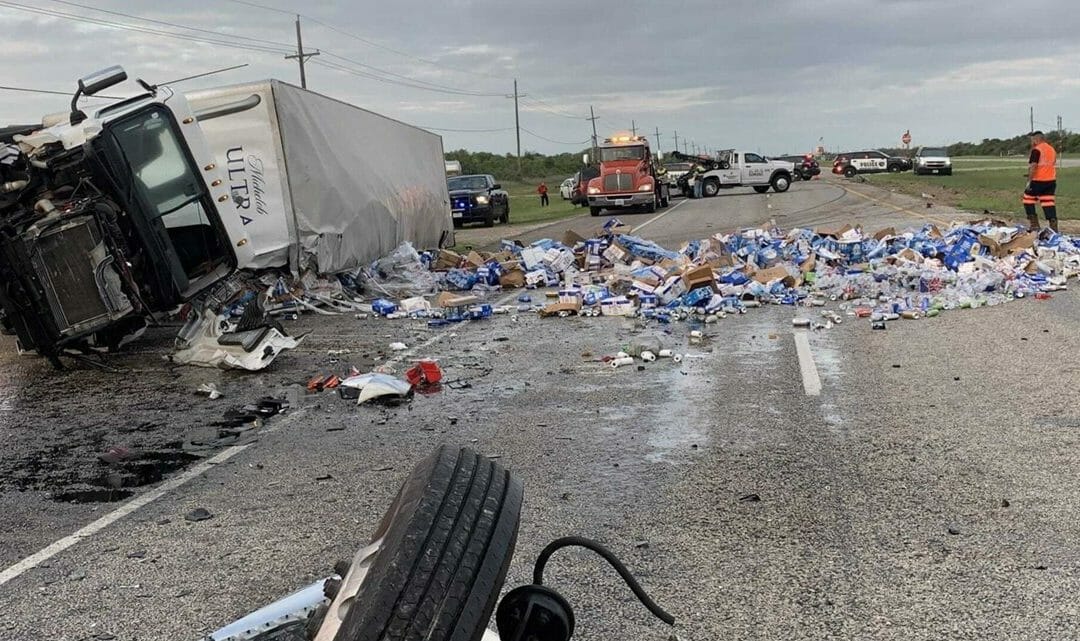Introduction
Truck accidents are some of the most devastating incidents on the road. The physical injuries often garner immediate attention, but the psychological effects are equally critical and often overlooked. Victims of truck accidents frequently experience a range of psychological impacts that can linger long after the physical injuries have healed. This article explores the psychological effects of truck accidents, particularly focusing on the trauma experienced by victims, and offers insights into healing and recovery in the aftermath of such incidents.

Understanding Truck Accidents
Truck accidents can occur due to various factors including driver negligence, mechanical failure, adverse weather conditions, or even improper loading of cargo. The National Highway Traffic Safety Administration (NHTSA) reports that in the United States, over 4,000 fatalities occur each year due to large Great site truck crashes, with countless others suffering injuries. The grim statistics underscore the severe implications of truck accidents, not just physically but also mentally.
Common Causes of Truck Accidents
- Driver Error: This includes distracted driving, fatigue, and decision-making errors. Vehicle Maintenance Issues: Failures due to poor maintenance can lead to accidents. Environmental Factors: Weather hazards, road conditions, and visibility issues also play a significant role. Excessive Speed: Large trucks often require greater stopping distances; speeding increases the likelihood of accidents.
The Psychological Impact of Truck Accidents
The aftermath of a truck accident is overwhelmingly traumatic for victims, impacting their mental health profoundly. Common psychological effects may include but are not limited to:
Post-Traumatic Stress Disorder (PTSD)
PTSD is one of the most severe psychological outcomes of any traumatic event, including truck accidents. Victims may relive the event through intrusive memories and nightmares, avoiding places or situations reminiscent of the accident. Symptoms include:
- Flashbacks and intrusive thoughts Avoidance of reminders of the accident Heightened anxiety and hyper-vigilance Emotional numbing and detachment from others
Anxiety and Depression
In addition to PTSD, victims may experience generalized anxiety or depression. The fear of driving again or the trauma associated with the accident can lead to ongoing anxiety about getting into a vehicle. Depression may manifest through feelings of hopelessness and a lack of interest in previously enjoyed activities.
Physical and Psychological Pain
Many victims face chronic pain from physical injuries, which can exacerbate mental health issues. The interplay between physical and psychological pain makes recovery challenging, sometimes leading to a cycle where one intensifies the other.
Impact on Relationships
Relationships often suffer after a traumatic event. Victims may withdraw from social connections or struggle with communication and intimacy, impacting familial and romantic relationships. This withdrawal can reinforce feelings of loneliness and helplessness.
Seeking Help: Legal and Psychological Options
Addressing the psychological repercussions of truck accidents often requires a multifaceted approach. Seeking help from various professionals can be beneficial for victims.
Consulting a Big Rig Lawyer
One of the first steps after experiencing a truck accident is to consult with a big rig lawyer. These attorneys specialize in truck accident cases and can provide victims with the necessary legal guidance to navigate the complexities of their situation. From handling insurance claims to understanding liability issues, a big rig lawyer can help ensure that victims receive the compensation they deserve.
Engaging with Truck Accident Attorneys
Truck accident attorneys bring expertise in the legal nuances surrounding truck accidents. They can help victims file lawsuits against negligent parties and ensure that psychological damages—such as PTSD, anxiety, depression, and pain and suffering—are adequately represented in negotiation settlements or court cases.
Psychological Therapy and Support Systems
In addition to legal support, psychological therapy is critical in the healing process for truck accident victims. Various therapeutic approaches can help manage trauma and aid recovery.
Treatment Options
- Cognitive Behavioral Therapy (CBT): A highly effective treatment for PTSD and anxiety, CBT helps individuals reframe negative thought patterns and develop coping strategies. Exposure Therapy: This form of therapy slowly introduces clients to reminders of their trauma in a controlled environment, helping them to process the incident without overwhelming anxiety. Support Groups: Connecting with others who have experienced similar traumas can foster a sense of community and understanding.
Self-Care for Recovery
Each individual’s recovery path is unique, and practicing self-care is integral to healing. Here are some strategies that can promote emotional well-being:
Developing Healthy Routines
Establishing a routine can provide structure and stability in chaotic times. Simple practices such as regular exercise, healthy eating, and adequate sleep contribute significantly to mental health improvements.
Mindfulness and Relaxation Techniques
Incorporating mindfulness practices—such as meditation, yoga, or deep-breathing exercises—into daily life can aid in reducing anxiety and improving emotional regulation. Such techniques allow individuals to stay present and grounded, combating intrusive thoughts and stress.
Building a Support Network
Having a robust support network is vital to the recovery process. Friends, family, and professional support can offer the necessary encouragement and assistance during difficult times.
Conclusion
The psychological effects of truck accidents are real and can significantly impact victims’ lives long after the physical wounds have healed. Understanding that trauma can persevere in various forms underscores the importance of seeking help—both legal and psychological. Consulting a big rig lawyer for legal representation and engaging a qualified truck accident attorney for emotional support are vital steps toward recovery. Moreover, incorporating therapeutic practices and self-care strategies promotes healing and helps victims regain control over their lives. Remember, recovery is a journey, not a destination, and taking the first step toward healing is crucial for overall well-being.